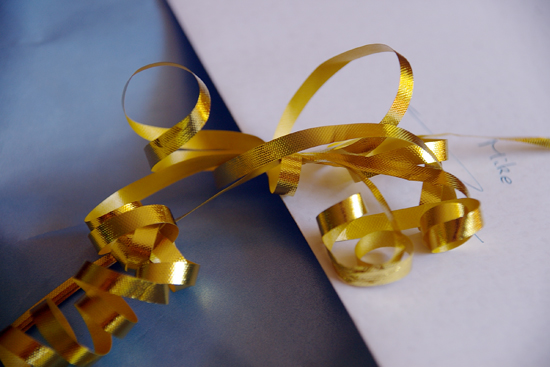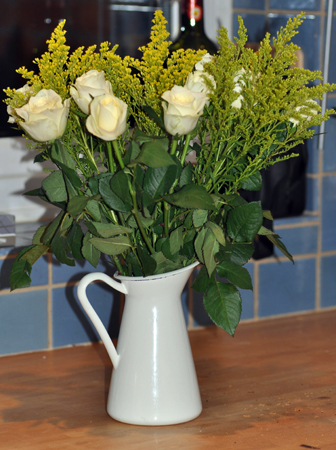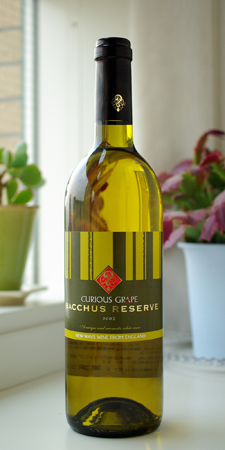Culture and Society: Gift Giving
General
A conventionally private and reserved people, the British do not frequently or emotively lavish gifts upon each other, as this may be viewed as too overt an outpouring of feeling. However, the British do exchange gifts to show affection, respect, and honor, to commemorate special days, and to further relationships. Unpretentious rather than extravagant gifts appeal to the British sense of understatement over ostentation.
There is no set protocol for gift presentation in Britain. A gift may or may not be opened in the presence of the giver. If it is, a verbal expression of thanks is fitting. If it is not, a note with specific mention of the gift is typically sent.
Hospitality Gifts
When invited to someone’s home for a meal, the British typically bring a token of appreciation. A bottle of wine or champagne, flowers, and/or chocolates are usually appropriate. Flowers are given, according to the European tradition, in odd numbers, avoiding 13, which is traditionally considered unlucky. Gifts of wine may not be opened immediately, as the host often already has a chilled or opened bottle to compliment the meal.
Foreigners invited to stay with a family may bring something from their own country, such as a coffee-table book. This invitation is an intimate one, and the gift of something that typifies where the guest is from is a way of reciprocating the hospitality by sharing something from one’s own home with one’s host. For the unprepared, it is still poilte to mail something upon returning home. After having been a guest in someone's home, the British usually send a hand-written thank-you note.
Personal Gifts
Family and friends give gifts to each other on special occasions such as birthdays, holidays, and weddings. Wedding gifts should be either mailed beforehand or brought to the wedding ceremony itself. Household items such as fancy glassware, candlesticks, or picture frames make typical wedding gifts, and often couples make a lists of items they need or would like. Milestone anniversaries are often celebrated with parties; gifts for a 25th anniversary are typically made of silver, while gifts for a 50th anniversary are of gold.
Birthdays are common causes of celebration in the UK. Family and friends give flowers or gifts chosen to please the receiver’s personal taste. However, anything extravagant or obviously expensive may cause embarrassment. Cards usually suffice for birthdays if the giver doesn't know the recipient well.
A traditionally Christian society, the British typically give gifts at Christmas to their family and friends. However, because of the vast diversity of backgrounds and religions among the population, it is best to make sure one’s intended recipient is Christian (as opposed to Jewish or Muslim) before giving a Christmas card or gift.
The tradition of sending Christmas cards began in Victorian England and has become a popular way of greeting friends and maintaining relationships during Christmas. Because of the overload of the British postal service during Christmas time, the British take care to mail cards early. In addition to cards, Christmas cakes are often given to neighbors and colleges, while larger, more expensive gifts are reserved for close friends and family.
December 26th is known in the UK as Boxing Day. Historically, "Christmas boxes" were used to collect money and leftover food for distribution to the needy. Today, the tradition continues in its own way—householders often give tips and bonuses to regularly visiting trades-people, such as the milkman, and some employers give bonuses to employees.
Business Gifts
In general, the British do not exchange or expect business gifts. If a gift is given in a business environment, it should be modest and tasteful, keeping in mind not to appear as a possible bribe. To ensure this, gifts are not brought to a preliminary meeting, and any exchange of gifts will take place after a successful transaction. Engraved office items, such as tasteful pens, are usually appropriate. Ostentatious gifts are avoided in order to avoid embarrassing a British business associate. Wine, champagne, or flowers may be given to a junior colleague who has proved helpful, but care should be taken not to appear patronizing or, when the giver is a man and the recipient a woman, not to appear overly forward.
If a business gift is received it is considered polite to reciprocate it as soon as possible. This can take the form of an invitation for a meal or to an event such as the opera. Business associates do not exchange gifts at Christmas, but cards are frequently sent, with care being taken to mail them early enough to avoid the postal rush during the holiday season.
Taboo Gifts
Giving gifts to government officials is frowned upon, as much legislation has been passed in recent years to prevent bribery in the public sector.
When giving flowers, roses, which are associated with romance, or white lilies and chrysanthemums, which are associated with death and funerals, typically make poor gifts.
Sharp objects such as knives or scissors symbolize the severing of a relationship and are not given as gifts. Handkerchiefs are avoided as gifts for joyful occasions, as they signify sorrow. Gifts which could be perceived as too personal, such as clothing or fragrances, may embarrass a British person’s sense of reserve unless the relationship is close. The number 13 is considered unlucky and is avoided for gifts.
Article written for World Trade Press by Heather Thielen.
Copyright © 1993—2024 World Trade Press. All rights reserved.

 United Kingdom
United Kingdom 

